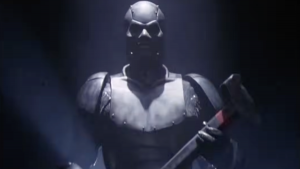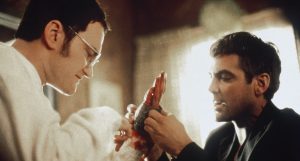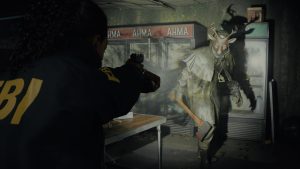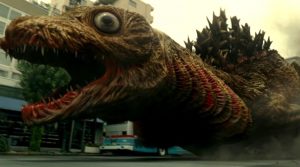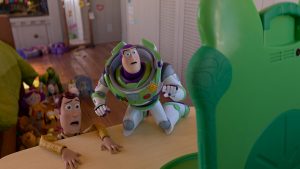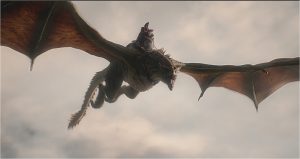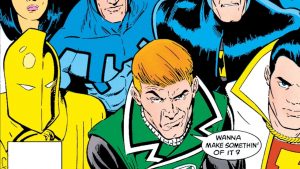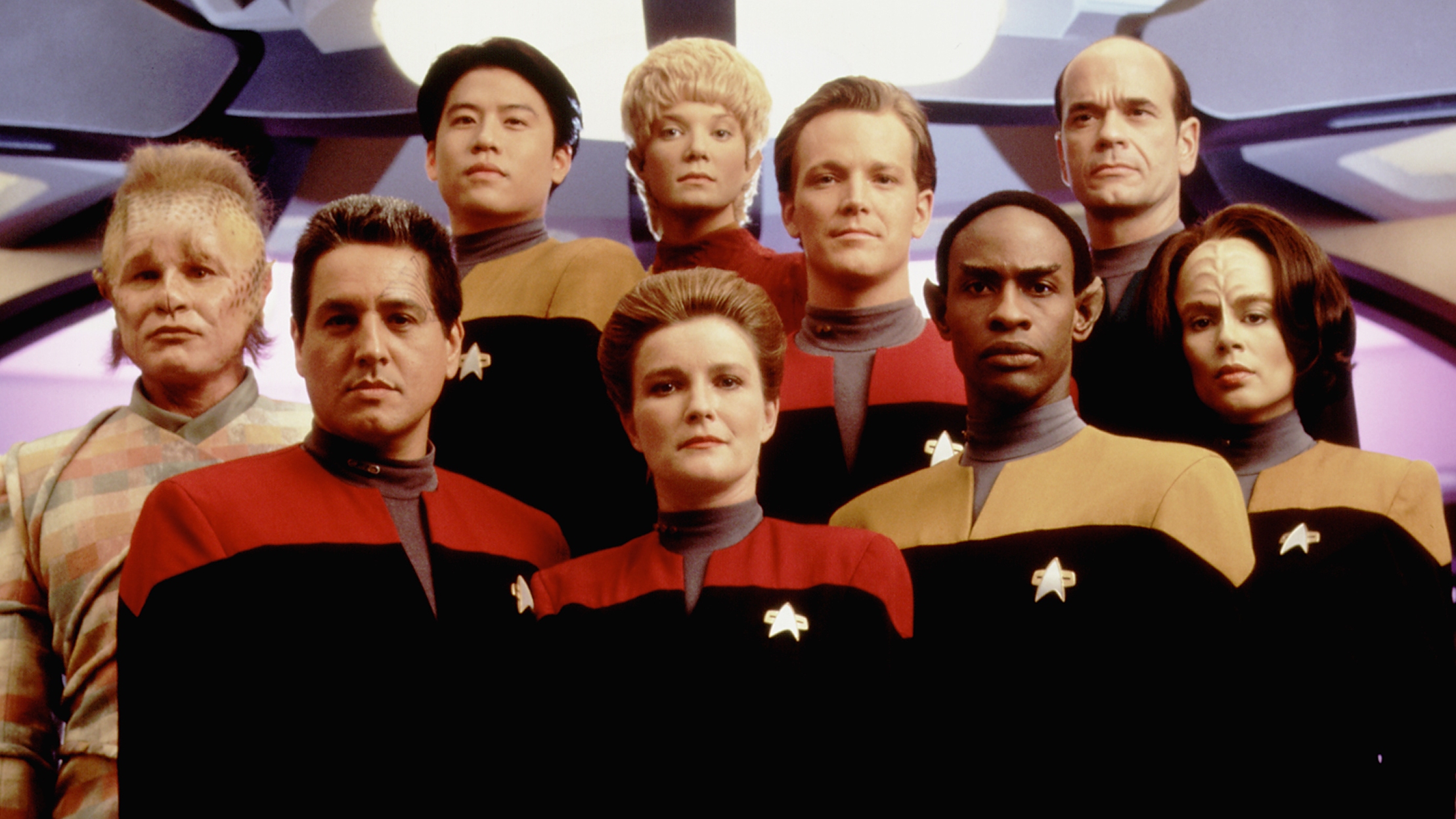
This Star Trek: Prodigy article contains spoilers.
For decades, Chakotay represented one of Star Trek‘s greatest failures. Chakotay was introduced in Star Trek: Voyager as the franchise’s first Native lead character, a course correction from Trek‘s embarrassing depictions of Native culture in the past (see “The Paradise Syndrome” from The Original Series and “Journey’s End” from The Next Generation).
Whatever producers’ intentions, Chakotay made matters worse. Not only did they fail to cast a Native actor in the part (Robert Beltran is Mexican American) but they hired a scam artist who called himself Jamake Highwater as consultant on the character, despite the fact that he had already been exposed as a Jewish man who pretended to be Native.
Making matters worse, producers lost interest in Chakotay after the third season of Voyager, giving him less to do, much to Beltran’s frustration. Hoping to get released from the show, Beltran increasingly demanded more money, but producers always agreed—not a bad gambit, all things considered, but Beltran’s disinterest in the character made Chakotay’s limited appearances a real drag.
In short, Chakotay seemed like the character least likely to return for any of Star Trek’s modern sequel series, even as Prodigy made Janeway’s search for her former XO a key plot point. So imagine Trekkers’ surprise when the Prodigy kids finally find Chakotay in season two—and that Chakotay completely rules.
We learn in the new season that Captain Chakotay has been stranded on an empty planet with his disabled starship the USS Protostar, a holographic reproduction of Janeway his only companion after the death of his commanding officer. By the time the kids arrive, Chakotay has settled into a deep despair, going through the motions to survive, but nothing else.
The appearance of the kids gives Chakotay hope, but not really because they have ideas that help restore the Protostar. Rather, the kids give Chakotay a crew, and thus a purpose. In the two-parter “Last Flight of the Protostar,” Chakotay directs the new arrivals in various tasks, getting them to work efficiently as they get the Protostar back into space.
The depth of Chakotay’s development can be heard in Beltran’s voice acting performance. At the start of the storyline, Beltran gives Chakotay the same flat affect he used in the later seasons of Voyager, when the character had no reason to exist on the series. But when Chakotay finds a purpose with the kids, Beltran’s voice becomes crisp and sharp. Beltran keeps the same warmth of the best Chakotay episodes, but adds an authority rarely seen on Voyager.
Chakotay’s best moment comes late in the story, when he consoles Dal, the self-appointed leader of the kids. Dal feels like he’s failed as a future captain, which leaves him without direction. “When I was your age, I was lost too,” Chakotay tells Dal. “Lost my father, my heritage, my purpose.” He explains that the lack of direction led to his involvement in the anti-Federation resistance army the Maquis, his status at the start of Voyager. According to Chakotay, service on Voyager restored the purpose he thought he had lost forever. It brought him back to the Federation and helped him become a great Captain.
Moreover, the statement helps give context to not just Chakotay’s decision to join the Maquis, but also his relatively easy return to the Federation. One of the great missed opportunities of Voyager was the way it never addressed the fact that half of the ship’s new crew were anti-Federation terrorists. Once Voyager stayed in the Delta Quadrant after the pilot episode “Caretaker,” everyone more or less fell in line under Janeway.
Chakotay’s speech in Prodigy reveals that, at his heart, he was always a Federation member. Unlike, say Michael Eddington from Deep Space Nine, he never saw himself as a freedom fighter against the Federation. Rather, he was just lost and looking for a purpose, which the Maquis provided for a time, until Janeway made him XO of Voyager and he found his role again.
Even more important might be what Chakotay doesn’t say in Prodigy. There’s no mention of the bones of his people, no declaration of “Akoocheemoya.” Instead, he simply mentions that he lost his heritage, a statement broad enough to retain the character’s Native heritage, but never recalls the nonsense that White producers made a Mexican American actor say to signify Indian-ness to non-Indigenous audiences. Is it as good as getting proper Native creators and actors in Trek? No, not at all. But it is the best case scenario for a massively mishandled character.
No one watching Voyager would have believed that Chakotay would make for a believable Captain, let alone a compelling character. With Prodigy, Chakotay is a proper character, one with a real heritage and a real purpose, a character who belongs among the Star Trek greats.
Star Trek: Prodigy season two is now streaming on Netflix.
The post Star Trek Just Fixed One of the Worst Voyager Characters appeared first on Den of Geek.
